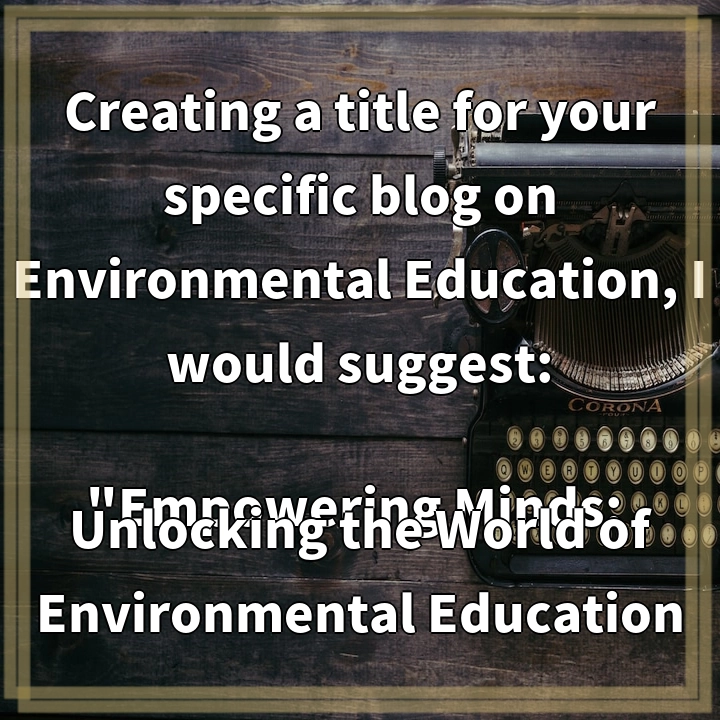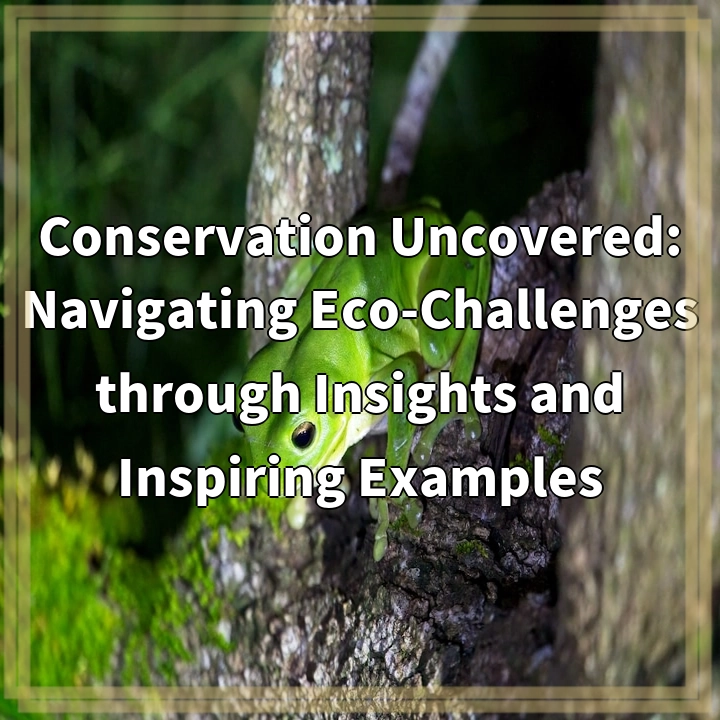
What it is:
Environmental education is a multifaceted approach to learning about the environment, fostering awareness, knowledge, skills, and attitudes necessary to address environmental challenges. It seeks to equip individuals with the tools needed to make informed decisions, take responsible actions, and contribute to sustainable development. Environmental education goes beyond traditional academic settings and takes place in various contexts, such as schools, communities, non-profit organizations, and online platforms.
Real-world problems:
1. Climate Change: Climate change is an urgent environmental issue that demands immediate attention. Environmental education plays a crucial role in clarifying the causes and consequences of climate change, educating individuals about mitigation and adaptation strategies, and inspiring collective action to reduce greenhouse gas emissions.
2. Biodiversity Loss: The rapid loss of biodiversity is another pressing environmental concern. Environmental education helps individuals understand the importance of biodiversity, the underlying causes of biodiversity loss, and the various conservation approaches needed to protect and restore ecosystems and species.
3. Pollution: Environmental pollution in different forms, including air, water, and soil pollution, continues to degrade ecosystems and harm human health. Environmental education raises awareness about the sources and impacts of pollution and empowers individuals to adopt sustainable practices, such as waste reduction, recycling, and responsible chemical usage.
4. Natural Resource Depletion: The overconsumption and unsustainable exploitation of natural resources put immense pressure on ecosystems. Environmental education addresses these issues by highlighting the importance of resource conservation, promoting sustainable resource management practices, and encouraging individuals to embrace alternative and renewable energy sources.
5. Environmental Injustice: Environmental education is also crucial in addressing environmental justice issues, ensuring that everyone, regardless of their social or economic background, has equal access to a healthy environment. It helps individuals understand and confront inequalities in the distribution of environmental burdens, such as air pollution, contaminated water, and hazardous waste sites.
By acknowledging these real-world problems and integrating them into environmental education initiatives, we can foster a more informed and empowered generation that actively participates in addressing environmental challenges and securing a sustainable future.

Solutions to Real-world Problems:
1. Climate Change: To address climate change, environmental education promotes sustainable practices like renewable energy adoption, energy conservation, and reducing carbon footprints. It emphasizes the importance of individual actions and encourages collective efforts to advocate for policy changes, promote cleaner technologies, and support renewable energy development.
2. Biodiversity Loss: Environmental education offers solutions to curb biodiversity loss, including habitat conservation, restoration initiatives, and promoting sustainable land-use practices. It emphasizes the significance of protecting endangered species, supporting biodiversity hotspots, and raising awareness about the benefits of preserving ecosystems for future generations.
3. Pollution: To tackle pollution, environmental education encourages the adoption of sustainable waste management practices, such as recycling and composting. It educates individuals about the harmful effects of pollution and encourages responsible chemical usage. It also promotes advocacy for stricter pollution control regulations and promotes the development of cleaner technologies.
4. Natural Resource Depletion: Environmental education addresses natural resource depletion by promoting sustainable resource management practices, such as sustainable forestry, responsible fishing, and reduced consumption. It emphasizes the importance of renewable energy sources and encourages individuals to embrace energy-efficient technologies.
5. Environmental Injustice: To combat environmental injustice, environmental education promotes awareness of environmental inequalities and supports community empowerment. It encourages individuals to engage in grassroots movements, advocate for equitable environmental policies, and support initiatives that address the disproportionate burden of pollution on marginalized communities.
By implementing these solutions, environmental education equips individuals with the knowledge, skills, and motivation to make positive changes in their communities and create a more sustainable and just world.















